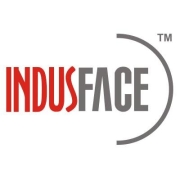Distributed Denial-of-Service Protection safeguards online services by mitigating attacks that overwhelm resources, ensuring service continuity and security for businesses.
Distributed Denial-of-Service Protection involves a series of measures designed to defend against large-scale network attacks. These solutions filter malicious traffic without affecting user experience. Advanced detection and real-time monitoring are critical for timely responses. With comprehensive attack analytics, businesses can fortify their defenses, ensuring operational integrity and customer satisfaction.
What are the critical features of Distributed Denial-of-Service Protection?In sectors like e-commerce, Distributed Denial-of-Service Protection is crucial in maintaining service uptime during peak traffic and potential attack periods. Financial institutions leverage these solutions to safeguard sensitive transactions and data integrity. For media and gaming, uninterrupted service translates to better user retention and satisfaction.
Mitigating DDoS attacks is essential for protecting digital assets and maintaining seamless service operations. Distributed Denial-of-Service Protection ensures organizations can operate without disruption, offering a secure and reliable user experience.
| Product | Market Share (%) |
|---|---|
| Cloudflare | 18.8% |
| Arbor DDoS | 11.4% |
| Radware DDoS | 8.5% |
| Other | 61.3% |



















































While DDoS is not a true virus, it uses malware (malicious software) to affect normal computer operations. Malware can come in the form of viruses, Trojans, spyware, and adware, and other types, and is used by hackers to gain unauthorized access to systems when carrying out DDoS attacks. A DDoS attack incorporates malicious programs in order to target the victim, making the virus more effective and destructive. Malware affects vulnerable devices by turning them into bots. Once the devices have been modified, a DDoS attack is launched as part of the botnet.
A DDoS attack is dangerous because it can cause major disruptions and become a threat to business continuity. These types of attacks affect mission-critical applications that organizations rely on, such as email, CRM systems, salesforce automations, and many other daily business operations. DDoS attacks can force companies to spend fortunes on repairs, can affect consumer trust, can lead to lost revenue, and can damage an organization’s reputation. When applications become unavailable or a public-facing website is down, productivity suffers. Unfortunately, one DDoS attack means that more attacks are likely expected to continue until more robust defense solutions are deployed.
DDoS Protection works by detecting and mitigating abnormal traffic flows that aim to overwhelm network resources and cause service disruption. Solutions typically implement a combination of traffic filtering, rate limiting, and traffic diversion to handle malicious requests while allowing legitimate traffic through. By utilizing advanced algorithms and real-time analytics, these solutions maintain the availability and performance of your services even under attack.
What Are the Key Features of an Effective DDoS Protection Solution?Key features include automated traffic analysis, scalability to handle large volumes of traffic, the ability to differentiate between legitimate and malicious traffic, and real-time threat detection. Integration with Content Delivery Networks (CDNs) and the capacity to provide global protection are also important. An effective solution should offer detailed reporting and visibility into attack patterns to help you refine your defense strategies.
Can DDoS Protection Solutions Scale for Large-Scale Attacks?DDoS Protection solutions are designed to scale according to the needs of your network and the severity of the attack. They utilize cloud-based infrastructures that can absorb and manage large volumes of traffic, leveraging global networks to distribute traffic loads effectively. This scalability ensures your services remain accessible even during extensive DDoS events, helping you maintain business continuity and minimize downtime.
How to Choose the Right DDoS Protection Provider?Choosing the right provider involves evaluating factors such as the scalability of their solution, the speed and efficacy of their response mechanisms, and their ability to integrate with your existing security infrastructure. Look for providers with a strong reputation, proven success in mitigating various types of DDoS attacks, and comprehensive support services. It's essential to assess their level of visibility into ongoing attacks and data reporting capabilities to ensure informed decision-making.
What Is the Cost of Implementing DDoS Protection?The cost varies based on the level of protection needed, the size of your network, and the complexity of your infrastructure. Solutions range from basic services for small businesses to comprehensive protection plans for large enterprises. When assessing cost, consider potential financial impacts of downtimes, data breaches, and lost customer trust due to unprotected networks. Many providers offer flexible pricing models, including pay-per-use or subscription options, allowing you to choose a plan that fits your budget and security requirements.